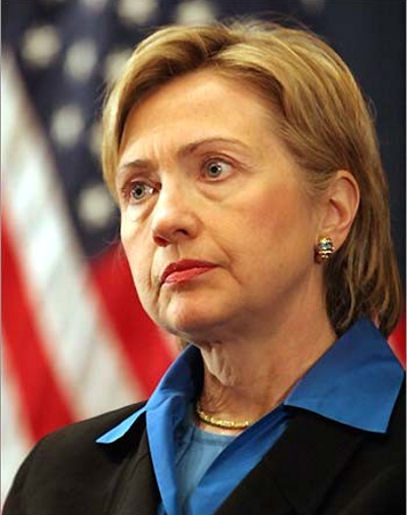For Hillary Clinton, much empty space to fill
David Ignatius/The Daily /Apr. 16, 2015
Hey, “everyday Americans,” what are you getting ready for? One couple is having a baby boy. Another couple wants to train the dog to stop eating the trash. Some people are starting new jobs, others retiring. And what about you, Hillary Clinton? “I’m running for president,” because “everyday Americans need a champion.”Clinton’s campaign launch video has variously been described as “slick,” “gauzy,” “icky” and “vapid.” I’d just call it empty – but in a way that invites the political definition to come: What does Clinton stand for? How does she plan to change an America in which, as she says in the ad, “the deck is still stacked in favor of those at the top”?
This slow-rolling, inductive start to Campaign 2016 isn’t a bad thing, if it leads Clinton to make a searching examination of what policies the country needs to grow again, at home and abroad. The Republican field is already blathering about fixes large and small, apparently without much reflection. It’s fine if Clinton starts off fuzzy – so long as she gets to definition and a new synthesis.
Though Clinton is often seen as a continuation of the political ethos of her husband Bill, the 42nd president, the truth is that the first Clinton era is over. The centrist policies of his administration – reflecting the intellectual consensus that developed around the neoliberalism of the Democratic Leadership Council – are largely played out. President Barack Obama tried to follow this line, and has gotten little traction. The next president will need to break the mold, not triangulate within it.
So what comes next? How can a mature economy achieve higher levels of growth and better distribution of income without wrecking the wondrous machine of the free market? The reality is that none of the center-left politicians in America or Europe has figured this out, as British political strategist Peter Mandelson notes. They’re all groping to address the problem that Clinton’s simplistic ad evokes – the re-empowerment of the middle class.
One of the creative voices looking for new answers is, perhaps surprisingly, that old Clintonite, Larry Summers. Though he was the embodiment of the Democrats’ centrist, Wall Street-leaning consensus during his years as Clinton 42’s treasury secretary, and as Obama’s first-term economic czar, Summers has been brooding in the last few years about what he calls “secular stagnation” in the U.S. economy.
Summers has offered some mildly iconoclastic proposals. He doubts that continued downward pressure on interest rates will help. He wants a greater role for expansionary fiscal policy, in part to invest in an economy that has a severe excess of savings over investment. At the same time, he is suspicious of some aggressive regulatory and redistributive approaches favored by more progressive Democrats, such as Sen. Elizabeth Warren.
How will Clinton play the populist card that she flashed in her “Getting Started” video? Will she develop policies that build on new work by Summers and other economists who are studying the problems of stagnation and inequality? If so, how will she keep faith with the financial elite that isn’t just a source of campaign funds, but in a larger sense is ground zero for the Age of the Clintons?
I have similar questions about how Clinton will fill in the blanks on foreign policy. As I noted in reviewing her memoir “Hard Choices” last June, she can claim that as secretary of state, she understood many crucial international issues sooner than did her erstwhile boss.
Clinton rightly counseled an “orderly” transition away from President Hosni Mubarak in Egypt in 2011, a recommendation that might have averted some of the turmoil of the “Arab Spring.” She famously urged support for the moderate Syrian opposition in 2012, when it might have prevented the rebels’ disastrous slide toward ISIS extremism. And before leaving office in 2013, she wisely advised Obama that a bumpy period was ahead with Russian President Vladimir Putin.
What does this package of sensible foreign policy positions add up to, in terms of a worldview? Will we see a return of the muscular Clinton of her Senate years, whose defense views weren’t very different from those of, say, John McCain? Or will she evolve, distilling lessons from the past several years into a new stance that recognizes limits of U.S. power?
Iran is an example of the Hillary dilemma. She helped start the secret diplomacy that led to the potential nuclear deal. What’s her position now, precisely? That’s more empty space, waiting to be filled by candidate Clinton.
David Ignatius is published twice weekly by THE DAILY STAR.




















